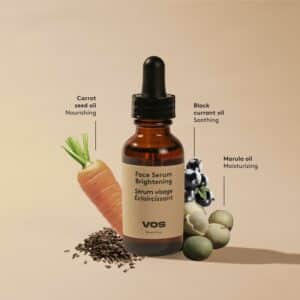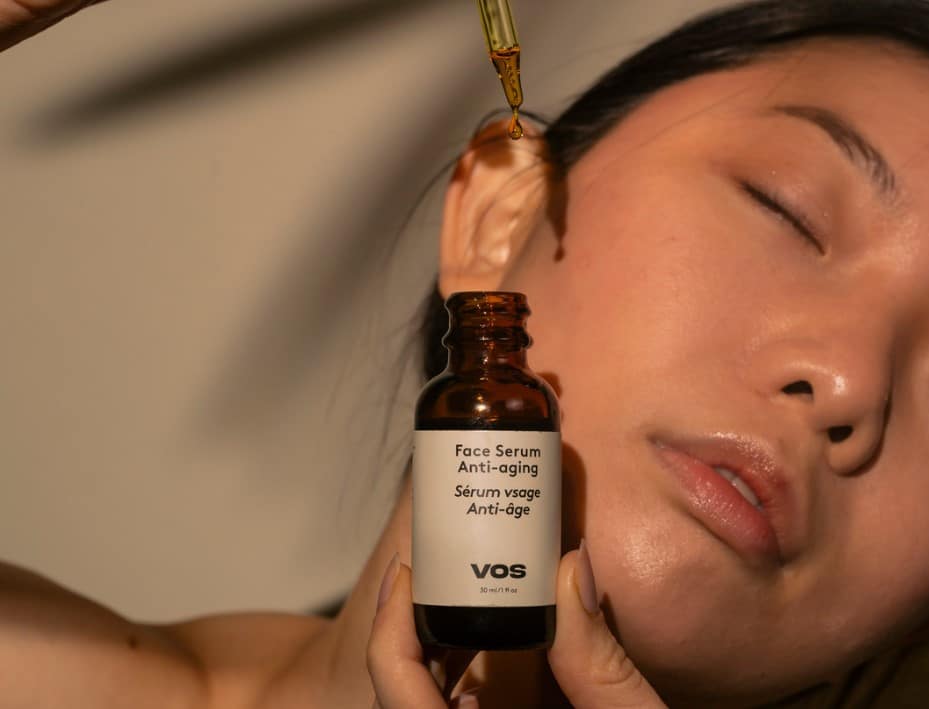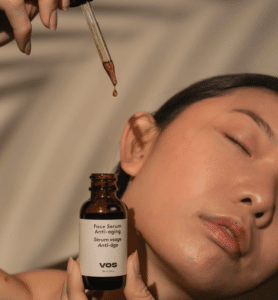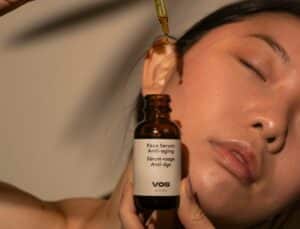Retinol has become a staple in many skincare routines due to its powerful ability to improve skin texture, reduce wrinkles, and combat acne. However, winter weather introduces challenges that may make you wonder if retinol serums are still safe to use. In this article, we’ll explore the benefits of retinol, its safety during winter, and how to adjust your skincare routine for optimal results.
What Is Retinol, and Why Is It Popular in Skincare?
Retinol is a derivative of vitamin A, a key ingredient known for its ability to promote skin cell turnover and stimulate collagen production. This makes it a go-to solution for a range of skin concerns, including fine lines, pigmentation, and acne.

Benefits of Retinol in Your Skincare Routine
- Reduces Fine Lines and Wrinkles: Retinol helps minimize the appearance of aging signs by promoting collagen production.
- Improves Skin Texture: It exfoliates the surface layer, resulting in smoother, brighter skin.
- Fades Dark Spots: Regular use reduces hyperpigmentation and evens skin tone.
- Treats Acne: Retinol unclogs pores, reducing breakouts and preventing new ones.
Challenges of Using Retinol in Winter
While retinol offers numerous benefits, its use in winter requires some precautions due to the season’s harsh environmental conditions.
Why Winter Affects Your Skincare Routine
The cold, dry air of winter, combined with indoor heating, strips the skin of moisture. Retinol, which can be drying and irritating, may exacerbate these effects, leading to redness, peeling, and sensitivity.
Common Concerns with Winter Retinol Use
- Increased Dryness: Retinol may intensify the dryness already caused by winter weather.
- Heightened Sensitivity: The skin’s barrier is weaker in winter, making it more prone to irritation.
- Sun Sensitivity: Although UV rays are less intense in winter, they can still harm your skin. Retinol heightens photosensitivity, making sun protection essential year-round.
Is Retinol Safe to Use in Winter?
Adapting Your Skincare Routine
Yes, retinol is safe for winter use if incorporated correctly into your skincare routine. The key is to balance its effects with hydrating and protective measures.
Steps to Safely Use Retinol in Winter
- Start Slow: Use retinol 2–3 times per week instead of daily to minimize irritation.
- Layer with Moisturizers: Follow up with a rich, hydrating moisturizer to lock in moisture.
- Avoid Harsh Products: Steer clear of exfoliants and other strong active ingredients that could aggravate dryness.
- Apply Sunscreen: Use a broad-spectrum SPF of at least 30 daily, even in cloudy or snowy conditions.
- Choose a Gentle Formula: Opt for retinol serums formulated for sensitive skin or those with added hydrating ingredients like hyaluronic acid.
Tips for Maximizing Retinol Benefits in Winter
Extra Care Measures
- Patch Test New Products: Before introducing a new retinol serum, test it on a small area of your skin to check for reactions.
- Hydrate From Within: Drink plenty of water and include hydrating foods in your diet.
- Use a Humidifier: Combat indoor dryness by using a humidifier in your home.
- Adjust Strength as Needed: If irritation persists, consider switching to a lower-strength retinol product.
- Consult a Dermatologist: If unsure about retinol use, seek professional advice to tailor your skincare routine to your needs.
Best Retinol Serums for Winter
Choosing the Right Product
Not all retinol serums are created equal, and selecting one tailored for winter can make a difference. Look for products with:
- Hydrating Ingredients: Serums containing hyaluronic acid or glycerin can offset dryness.
- Low Retinol Concentrations: Beginners or those with sensitive skin may benefit from a lower percentage of retinol.
- Added Antioxidants: Vitamin E or niacinamide can enhance skin protection and reduce irritation.
Signs Your Retinol Routine Needs Adjustment
Recognizing and Addressing Issues
Overuse or improper application of retinol can lead to adverse effects. Be on the lookout for:
- Persistent redness or peeling
- Severe dryness or irritation
- Increased sensitivity despite precautions
If these occur, scale back usage or consult a dermatologist for guidance.
The Final Verdict: Retinol Serums for Winter
Retinol serums are safe and effective during winter when used correctly. By adapting your skincare routine and prioritizing hydration, you can enjoy the benefits of retinol without compromising your skin’s health. Remember to introduce changes gradually and monitor your skin’s response to ensure a glowing complexion all season long.









